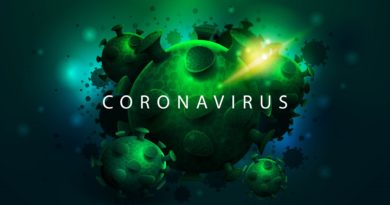How social media influencer tactics help conspiracy theories gain traction online
What do social media influencers and conspiracy theorists have in common?
It’s a question that sociologist Stephanie Alice Baker from City, University of London had not seriously considered before the COVID-19 pandemic.
But while investigating how social media influencers were responding to the pandemic she noticed that the techniques lifestyle gurus used to promote themselves were also being adopted by conspiracy theorists.
These were techniques that Dr Baker had described in a recently published book titled Lifestyle Gurus: Constructing Authority and Influence Online.
“I think these are just savvy marketing techniques. [Influencers] are not all trying to dupe the public, but they are brands,” Dr Baker says.
“It’s important to see conspiracy theorists through the same lens.”
Both influencers and conspiracy theorists could only thrive in a “low-trust society”, she says.
“That combination allows influencers to use the techniques I’ve outlined to establish authority.”
A hero’s journey
Both influencers and conspiracy theorists present themselves as anti-establishment underdogs on a “hero’s journey”, comparable to Biblical tales of good versus evil, Dr Baker says.
“They don’t totally manufacture these narratives, but they cherry-pick information and it’s woven with anecdotal evidence.”
“It’s great storytelling, really.”
Dr Baker cites the case of the viral conspiracy theory film Plandemic, which promoted misinformation about COVID-19 and was eventually removed from Facebook and other social networks for violating their guidelines.
The star of the film, Judy Mikovits, was presented in the film as a “whistle-blower and scientist who’d been wronged by [US government scientist Dr Anthony] Fauci and the scientific community in general,” she says.
The timing of the film also just so happened to coincide with the publication of Mikovits’ book.
Former Instagram star Belle Gibson, who made hundreds of thousands of dollars from false claims her diet cured her brain cancer, similarly gained a huge following online by positioning herself as a rebel who defeated the odds against medical advice.


Colin Klein, a philosopher at the Australian National University, has also observed strategies that conspiracy theorists use to convince others they are telling the truth.
Professor Klein, who studies the way people debate and promote conspiracy theories on the popular online forum Reddit, says that many users described their newfound belief in a conspiracy as a hero’s journey or “religious awakening”.
But he found that such users had not actually been randomly enticed by misinformation, but were rather drawn to the conspiracy forum by their pre-existing views.
“There’s a tempting picture … that people are largely passive, that there’s misinformation around and people accidentally get exposed to it,” he says.
“In fact many of these things only work because they’re falling on people who are predisposed [to conspiratorial thinking]. They either have these narratives of the world or they’re susceptible to it.”
Constructed friendships
Dr Baker says prominent conspiracy theorists established trust by positioning themselves as equals or friends directly communicating with their audiences.
They share personal information about their daily routines, sometimes multiple times a day, in a performance of manufactured authenticity.
This helps them quickly build trust and relationships with people they have never physically met.
“Whereas mainstream authority figures are distrusted for various reasons, these online users are trusted … for being just like us,” Dr Baker says.
“We know from advertising that people are much more likely to trust their friend’s advice than some professional or paid celebrity endorsement.”
Edward Hurcombe, a researcher at the Queensland University of Technology’s Digital Media Research Centre, has studied how 5G- and COVID-19-related conspiracy theories migrate from fringe groups on Facebook to mainstream news outlets.
The study, published in the Media International Australia journal in August, found the major turning point came when celebrities and sports stars amplified the misinformation to their millions of followers on social media, even when they didn’t directly endorse it.
“We found that it really became a story in the mainstream consciousness and really started getting attention on Facebook after celebrities like [American singer] Keri Hilson and Woody Harrelson posted about 5G and COVID-19 … raising this possibility of ‘are they connected?’” Dr Hurcombe says.
“News articles started reporting on the conspiracy because celebrities were talking about it. Celebrities talking about a conspiracy theory [is] almost inherently newsworthy.”
Although many of the news articles were critical of the celebrities involved, conspiracy theorists used this coverage to indicate that they were “close to uncovering some deeper truth,” he says.
Blowing off steam with conspiracies
The ANU’s Professor Klein says it isn’t clear how many people who discuss conspiracies on Reddit genuinely believe them.
He argues that conspiracy theories serve unique purposes for individuals, some of whom just use them to “blow off steam”.
“People are coming up with hypotheses, they’re debating them. That feeling of being a part of a community and having that collaborative project is actually really important,” he says.
People participate less in social clubs like the RSL and party politics than they did 30 years ago, Professor Klein says, which means that offline life had become more fragmented.
That makes the mere act of discussing conspiracies “a valuable thing in its own right”, he says, even if they didn’t believe in them, as it allows some form of interaction.
He likened people chatting about conspiracies online to a group of friends discussing the AFL grand final at a pub.
“It’s responsive to what’s going on, but it’s also an expression of being a [Geelong] Cats fan.
“It’s some mix of belief and hope and expression of who you are and what your worldview is. It’s hard to disentangle these.”
*** This article has been archived for your research. The original version from ABC News can be found here ***


